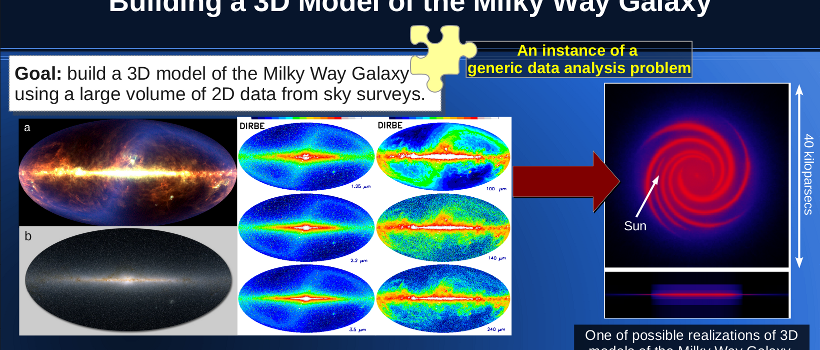Accelerating Public Domain Applications: Lessons from Models of Radiation Transport in the Milky Way Galaxy

Last week I had the privilege of giving a talk at the Intel Theater at SC’13. I presented a case study done with Stanford University on using Intel Xeon Phi coprocessors for accelerating a new astrophysical library HEATCODE (HEterogeneous Architecture library for sTochastic COsmic Dust Emissivity).
If this talk can be summarized in one sentence, that will be “One high performance code for two platforms is reality“. Indeed, the optimizations performed in order to optimize HEATCODE for the MIC architecture lead to a tremendous performance increase on the CPU platform. As a consequence, we have developed a high performance library which can be employed and modified both by users who have access to Xeon Phi coprocessors, and by those only using multi-core CPUs.
The paper introducing HEATCODE library with details of the optimization process is under review at Computer Physics Communications. The preliminary manuscript can be obtained from arXiv, and the slides of the talk are available on this page (see links above and below). The open source code will be made available upon the acceptance of the paper.
Presentation slides: ![]() SC13-Intel-Theater-Talk-Colfax.pdf (3 MB)
SC13-Intel-Theater-Talk-Colfax.pdf (3 MB)
Manuscript: ![]() http://arxiv.org/pdf/1311.4627 (submitted to Computer Physics Communications)
http://arxiv.org/pdf/1311.4627 (submitted to Computer Physics Communications)